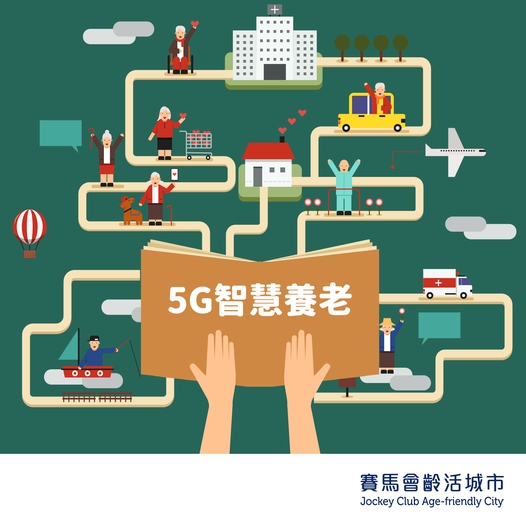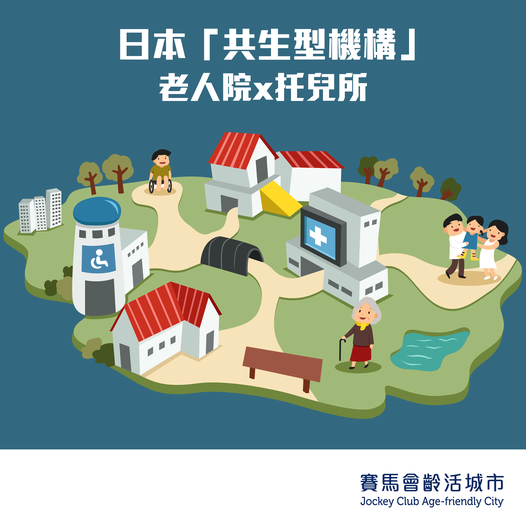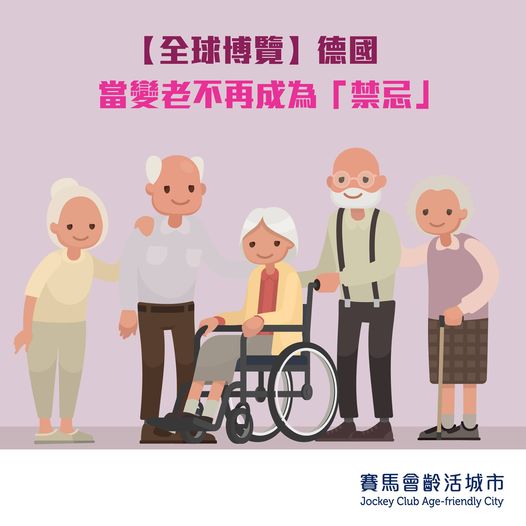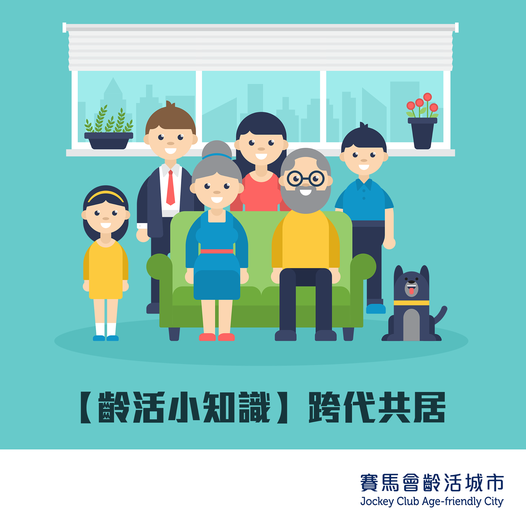Learn from
Good Practices



Five silver hair innovation projects | United States
Different states and cities in the USA have been implementing age-friendly intergenerational innovation projects, taking into account of varying needs of the elderly in housing, transportation, outdoor spaces, leisure, social participation, etc. They include:
Intergenerational co-housing: Boston has co-operated with start-up companies to create affordable housing for young renters by matching them with elderly people who have spare rooms. The elderly can age in place and add more vitality to life when living with young renters.
Grandparent-grandchildren co-housing: In the USA, many grandchildren are raised up by their grandparents. Washington has introduced apartments that are suitable for both generations. There are barrier-free walkways and facilities, children playground and regular workshops are provided for grandchildren while computer-related courses are provided for the grandparents.
Kindergarten inside elderly home: Children will visit elderly homes every day, adding a lot of energy and laughter to elderly homes.
Parks designed for the elderly: Providing long benches and elderly sports venues, etc., in a park enables elderly people and young people to have fun at the same time.
Flexible transportation arrangement: Apart from regular timetable for trains and buses, the city of Denver has partnered with private operators and public bus services to offer transportation services based on the elderly needs, facilitating them to go out in a more convenient way.
5G smart ageing | China
In Beijing, China, a pilot platform on 5G Internet of Things (IoT) for smart ageing and care services was established to enhance the services to support ageing at home and ageing in the community. Through 5G network, elderly households and service spots are linked. Through the use of smart devices, the platform can provide the elderly with comprehensive professional services such as health management, one-click call, sleep monitoring, etc. The smart ageing IoT network greatly enhances the coverage and timeliness of elderly care services in the community. Apart from providing timely assistance to the elderly, the staff of service spots are equipped with portable medical all-in-one device so that they can offer home-based health services for the elderly.
Read more: Click here (Chinese version only)
Elderly-children symbiosis life | Japan
“Symbiosis” means the mutual understanding and respect among stakeholders in a community, which can be changed into social resources to support each other. The Toyama County in Japan has a symbiosis organisation, which has combined elderly home, nursery schools and facilities for the disabled in one place and operate under the principle of “gratitude, humbleness and sympathy”.
In the symbiosis environment, the children will go to elderly home after school to greet the elderly and share what happened in the day, while the elderly will accompany the children to have a walk and play in the common areas. This symbiosis organisation will also organise different interest classes (e.g. sign language) for the children with the elders of elderly home being the tutors. Through the interactions, the elderly will not feel lonely, while the children will learn how to respect the elderly, and gradually nurture a sense of sympathy among the young generation.
Read more: Click here (Chinese version only)
Integration of rehabilitation into work | Japan
In Tokyo, Japan, a day care centre run by a non-profit organisation has integrated rehabilitation and leisure into “work”, creating “working opportunities” to the dementia elderly patients. These patients are arranged to complete simple tasks such as car washing for one or two hours per day and several days per week. In return, they are awarded with a free meal. The most important thing is that they feel more connected with the society and their contribution to the society is being recognised. For those patients with mild cognitive impairment, moderate participation in activities can bring positive impact on physical and mental wellness, which help slow down the deterioration of the illness.
Read more: Click here (Chinese version only)
Fast food chain launching soft meals for the elderly | Japan
The elderly may face swallowing difficulty as they age. Normal pureed meals may not look or taste good, therefore they may sometimes refuse to eat and cannot get enough nutrition. The Japanese fast food chain Yoshinoya has introduced soft meal options such as grilled eel and beef to hospitals and elderly homes. Using freezing techniques, the soft meals can be kept in its original form, which would enhance the appetite of elderly people and enjoy eating.
Read more: Click here (Chinese version only)
When growing old is no longer a “taboo” | Germany
Being a super-aged society, Germany has all sorts of elderly associations all over the country organising activities such as talks, movies, coffee gatherings, etc. People enjoy large lawns and sports facilities designed for the elderly, providing plenty spaces for activities and social gatherings. There are even internet cafés opened by the elderly associations, allowing the elders to learn about computers, the internet and new technologies. Besides, every year there are shortlistings of age-friendly shops from a wide range of businesses such as pharmacies, florist shops, convenience stores, etc. These shops not only provide good customer services to the elderly, but also offer free delivery service, which makes their lives more convenient.
Read more: Click here (Chinese version only)
“Watch Over” service by postmen | Japan
“Watch Over” service was originated from Japan. In the past, this service was mainly offered by social service groups and service providers (e.g. security or home equipment companies) to elderly people through regular visits and greetings, emergency support, etc. As the demand was increasing, Japan Post has also provided this “Watch Over” services at its full swing. With some 24,000 service spots across the country, Japan Post brought the caring “Watch Over” service to remote areas, including home visits, phone calls, etc., which brought warmth and caring to elderly people who were living alone.
Read more: Click here (Chinese version only)
Launch of “Intergenerational Cohousing” concept | Netherlands, Taiwan
The Netherlands and France launched “Intergenerational Cohousing” concept. Housing authorities or elderly homes offered free housing to young people, who spent time accompanying cohousing elderly people, teaching them computer skills, etc. In Taiwan, the “Intergenerational Cohousing” scheme even did not require youngsters to commit to any volunteering service, but only to live with the elderly, hoping to bridge up the two generations.
“Intergenerational Cohousing” can offer a bonding time between the old and young generations, through which the elders can become energetic and happy when getting around with younger people, and the youngsters can receive caring and learn valuable life experiences from elderly people. This “Intergenerational Cohousing” is a mutual beneficial new living model.
Read more: Click here (Chinese version only)





